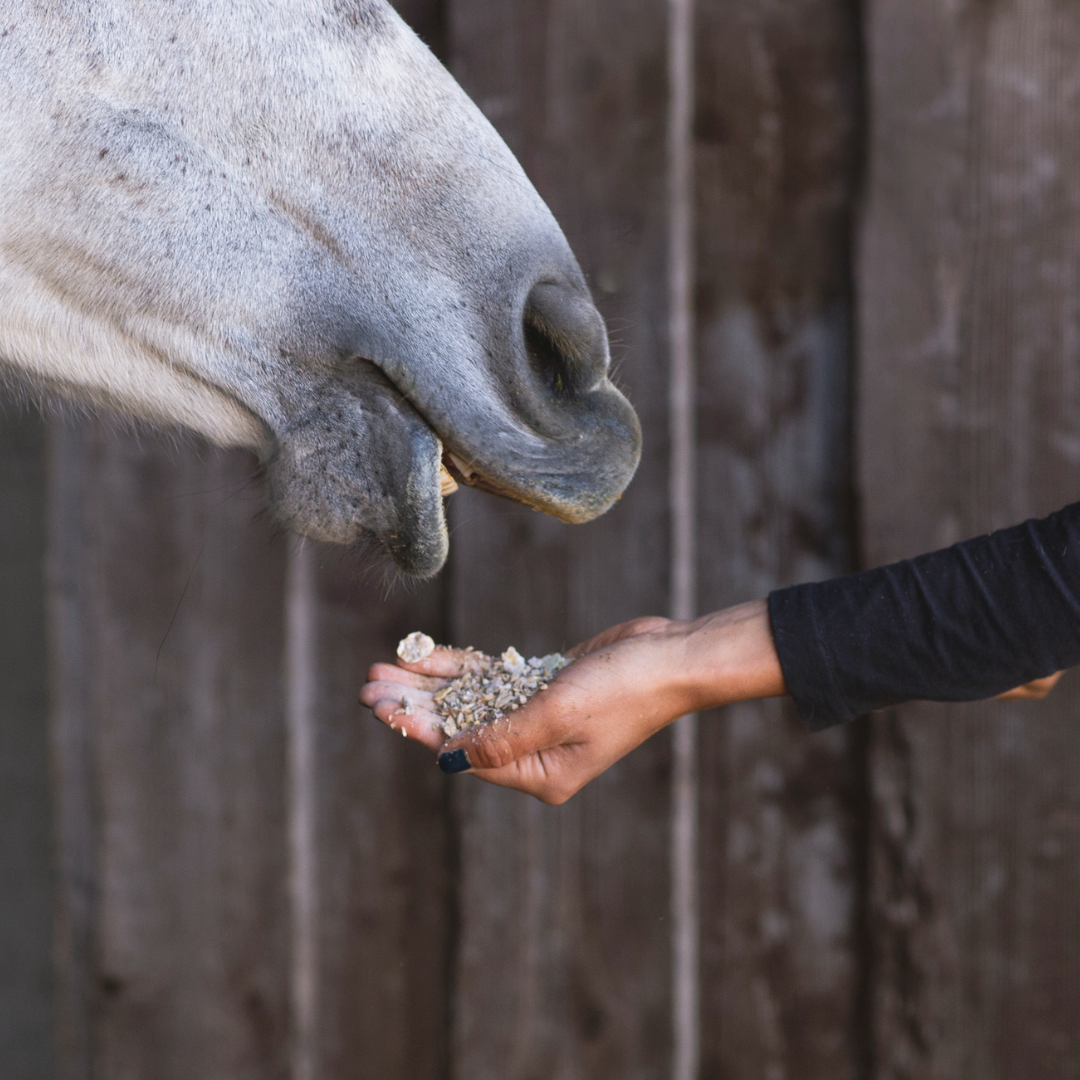Healthy Holidays: Tips for a Stress-Free Season
Share

As the holiday season approaches, it's easy to get caught up in the hustle and bustle. For equestrians, this time can be particularly hectic as balancing barn time, family gatherings, and holiday events becomes a feat in itself. Amid the seasonal swirl, it’s essential to keep both yourself and your horse in good health. This holiday season, prioritize wellness for you and your equine partner with these tips, especially focusing on equine nutrition.
Equine Nutrition Tips
- Maintain a Consistent Feeding Schedule
- Avoid Overloading with Holiday Treats
- Increase Fiber Intake for Gut Health
- Hydration is Key
- Monitor Body Condition and Adjust Feed Accordingly
- Add a Seasonal Boost with Nutritional Supplements
- Take Time to De-Stress with Your Horse

Horses are creatures of habit, and even minor changes in their routine can lead to stress, which may affect their digestive health. During the holidays, try to keep feeding times as consistent as possible. Whether you're traveling or welcoming guests, make sure your horse’s mealtime stays predictable to avoid any unnecessary digestive upsets. It's tempting to spoil our horses with treats during the holiday season, but moderation is key. Overloading them with sugary snacks or rich foods can disrupt their gut health and lead to colic. Instead, stick with healthier options, like carrot sticks or apple slices, and limit portions. You can even make homemade, low-sugar horse treats as a special, but health-conscious, holiday reward!
As colder weather sets in, horses often need a little extra fiber to help them stay warm and maintain digestive function. Hay is a primary fiber source, but for horses who need a boost, consider adding beet pulp or other high-fiber supplements to their diet. Fiber ferments in a horse’s hindgut, generating warmth and promoting digestive health, so it’s especially valuable in winter. Horses can be less inclined to drink in cold weather, which can lead to dehydration and increase the risk of impaction colic. Keep water warm and add salt or electrolytes to encourage drinking. Also, consider offering soaked hay or beet pulp to increase moisture intake – a valuable trick during the holidays when your horse’s routine might already be slightly disrupted.
Holidays often mean changes in your schedule, and potentially less riding time. Reduced exercise, combined with the colder temperatures, can mean that your horse may need slight adjustments to their feed. Regularly assess your horse’s body condition, and consult with a nutritionist if necessary to find the right balance, avoiding over- or underfeeding. Winter can be a good time to add certain nutritional supplements to your horse's diet, especially if they’re exposed to more stress. Digestive aids, probiotics, or even immune-support supplements can help keep your horse feeling their best. Remember, it’s always wise to introduce supplements gradually and consult with your vet for the most appropriate options. The holiday season can bring added pressures, but spending time with your horse can be a calming, grounding activity for both of you. Try to set aside some quiet bonding time at the barn, whether it's hand-grazing, grooming, or going for a relaxing ride.
This routine will not only reduce your own stress levels but help keep your horse relaxed and happy. Keeping both you and your horse healthy through the holiday season is the ultimate gift! By maintaining a steady feeding schedule, emphasizing fiber, encouraging hydration, and choosing nutritious treats, you’ll ensure your horse stays happy and healthy all winter long. Remember, it’s not just about their physical health – time spent caring for your equine friend is one of the best ways to keep your spirits high this season.

